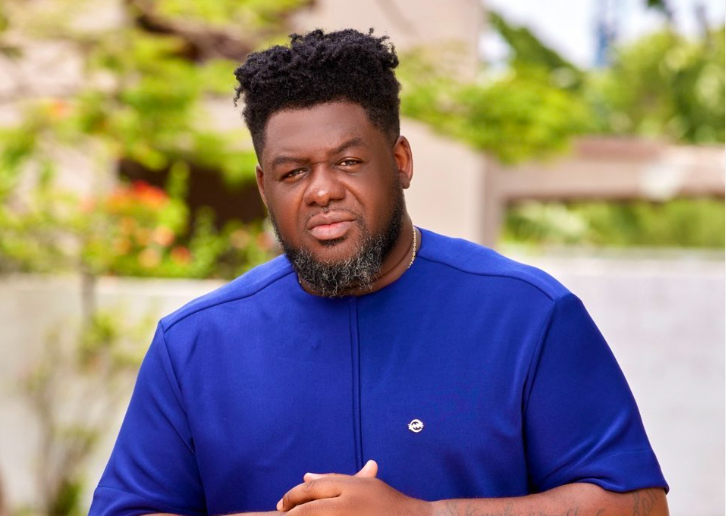Navigating the AI Music Revolution: Opportunities and Strategies for African Artists
- orpmarketing
- Sep 24, 2025
- 5 min read

The rise of artificial intelligence (AI) in music production is transforming the global music industry, and African artists are at a pivotal moment. AI tools are becoming increasingly sophisticated, capable of composing, producing, and even mimicking vocal styles with remarkable precision. While this technological shift presents exciting opportunities for creativity and accessibility, it also raises concerns about intellectual property, cultural ownership, and the potential exploitation of artists’ work. For African musicians, the challenge is to harness AI’s potential while safeguarding their rights and cultural heritage. This blog explores key lessons African artists can learn from the AI music revolution, strategies to position themselves for success, and ways to protect their rights amid fears of companies using purchased music catalogs to train AI models.
Lessons African Artists Can Learn from AI Music
Embracing AI as a Creative ToolAI offers African artists unprecedented opportunities to enhance their creative process. Tools like AI-generated backing tracks, vocal pitch correction, and genre-blending algorithms can reduce production costs and time. For instance, Nigerian producer Eclipse Nkasi used AI to produce a nine-track album, significantly lowering costs and expediting the process. African artists can learn to integrate AI to create innovative sounds, blending traditional rhythms like Afrobeat or Highlife with modern genres, thus appealing to global audiences.
Preserving Cultural Heritage Through DigitizationAI can help preserve Africa’s rich musical heritage by digitizing rare recordings and creating searchable databases for indigenous instruments and oral traditions. The African Music Library, for example, uses machine learning to analyze and archive thousands of hours of African genres. Artists can learn to leverage these tools to document and share their cultural sounds, ensuring they remain accessible for future generations while maintaining authenticity.
Expanding Global ReachAI-driven platforms, such as streaming services with personalized recommendation algorithms, enable African artists to reach diverse global audiences. By analyzing listener data, these platforms can connect artists with niche markets, amplifying their visibility. African musicians can learn to optimize their music for these algorithms by focusing on metadata, consistent releases, and engaging content that resonates with international listeners.
Cost-Effective Production and CollaborationAI lowers barriers for emerging artists by enabling high-quality music production without expensive studio time. Tools like Korin AI, a Nigerian startup, provide access to authentic African sound libraries, addressing the lack of native datasets in global AI platforms. Artists can learn to use these tools to experiment with new sounds and collaborate across regions, creating unique ensembles that blend diverse African musical traditions.
Positioning for Success in the AI Music Era
To fully capitalize on AI’s potential, African musicians must strategically position themselves:
Invest in AI LiteracyArtists should educate themselves on AI tools and their applications in music production. Workshops, online courses, and collaborations with tech innovators can equip musicians with the skills to use AI effectively. For example, understanding how to use AI for mixing, mastering, or creating backing tracks can enhance productivity and creativity.
Collaborate with Ethical AI PlatformsPartnering with AI platforms that prioritize African voices, like Korin AI, ensures that artists’ work is represented authentically. These platforms focus on local needs, offering tools tailored to African musical styles and addressing copyright concerns. By aligning with such initiatives, artists can maintain control over their creative output.
Build a Strong Digital PresenceA robust online presence is crucial for leveraging AI-driven platforms. Artists should optimize their profiles on streaming services, use social media to engage fans, and ensure their music is properly tagged with metadata to improve discoverability. This positions them to benefit from AI’s ability to analyze and recommend music to global audiences.
Advocate for Fair Licensing ModelsAs AI companies increasingly seek licensing agreements with artists, African musicians should negotiate terms that ensure fair compensation and control over their work. Engaging with organizations like the Southern African Music Rights Organisation (SAMRO) can help artists navigate licensing deals and secure royalties.
Protecting Rights Amid AI Training Concerns
The fear that companies are buying African music catalogs to train AI models without proper consent or compensation is a valid concern. High-profile artists like Billie Eilish and Pearl Jam have criticized the use of unlicensed music to train AI, highlighting the risk of copyright infringement and diluted earnings. African artists face similar risks, particularly given the lack of specific AI-related copyright legislation in many African countries, such as South Africa. Here are key strategies to protect their rights:
Retain Ownership of CatalogsArtists should be cautious when approached by companies seeking to purchase their music catalogs. Retaining ownership ensures control over how their work is used, including in AI training datasets. SAMRO emphasizes the importance of ownership to protect against unauthorized use and secure royalties.
Demand Transparent Licensing AgreementsWhen licensing music to AI companies, artists should insist on clear terms regarding how their work will be used, including whether it will train AI models. Contracts should specify compensation structures and usage rights, ensuring artists are fairly rewarded. The music industry’s shift toward explicit licensing frameworks, as seen with major labels like Warner Music Group, sets a precedent for African artists to follow.
Leverage Collective AdvocacyJoining organizations like SAMRO or participating in forums like the one convened by Creatives Garage in Kenya can amplify artists’ voices. Collective advocacy can push for stronger copyright laws and ethical AI practices, ensuring that African artists’ contributions are respected and compensated.
Monitor and Enforce RightsArtists can use music recognition technology and digital tracking systems, as SAMRO does, to monitor where their music appears online, including on platforms like YouTube and TikTok. This helps identify unauthorized use, including in AI-generated content, and ensures royalties are collected.
Engage Legal ExpertiseConsulting entertainment lawyers familiar with AI and copyright law can help artists navigate complex contracts and protect their intellectual property. Legal experts can advise on the implications of AI training and ensure agreements align with artists’ interests.
Addressing Ethical and Cultural Concerns
Beyond legal protections, African artists must address ethical questions surrounding AI’s use in music. The integration of AI risks appropriating traditional sounds without proper acknowledgment to the communities from which they originate. Artists should advocate for AI tools that respect cultural heritage, ensuring benefits flow back to these communities. For example, Emmanuel Ogala from Josplay uses AI to archive Africa’s diverse music heritage, balancing innovation with cultural preservation. By championing ethical AI practices, artists can ensure their cultural contributions are honored.
Conclusion
The AI music revolution offers African artists a chance to innovate, preserve their heritage, and reach global audiences. By embracing AI as a creative tool, investing in digital literacy, and collaborating with ethical platforms, musicians can position themselves for success. However, protecting their rights is paramount, especially amid concerns about companies using purchased catalogs to train AI models. Through vigilant ownership, transparent licensing, collective advocacy, and legal expertise, African artists can safeguard their intellectual property and cultural legacy. As the industry evolves, a balanced approach—embracing AI’s potential while advocating for fair and ethical practices—will ensure African musicians thrive in this new era.




Comments